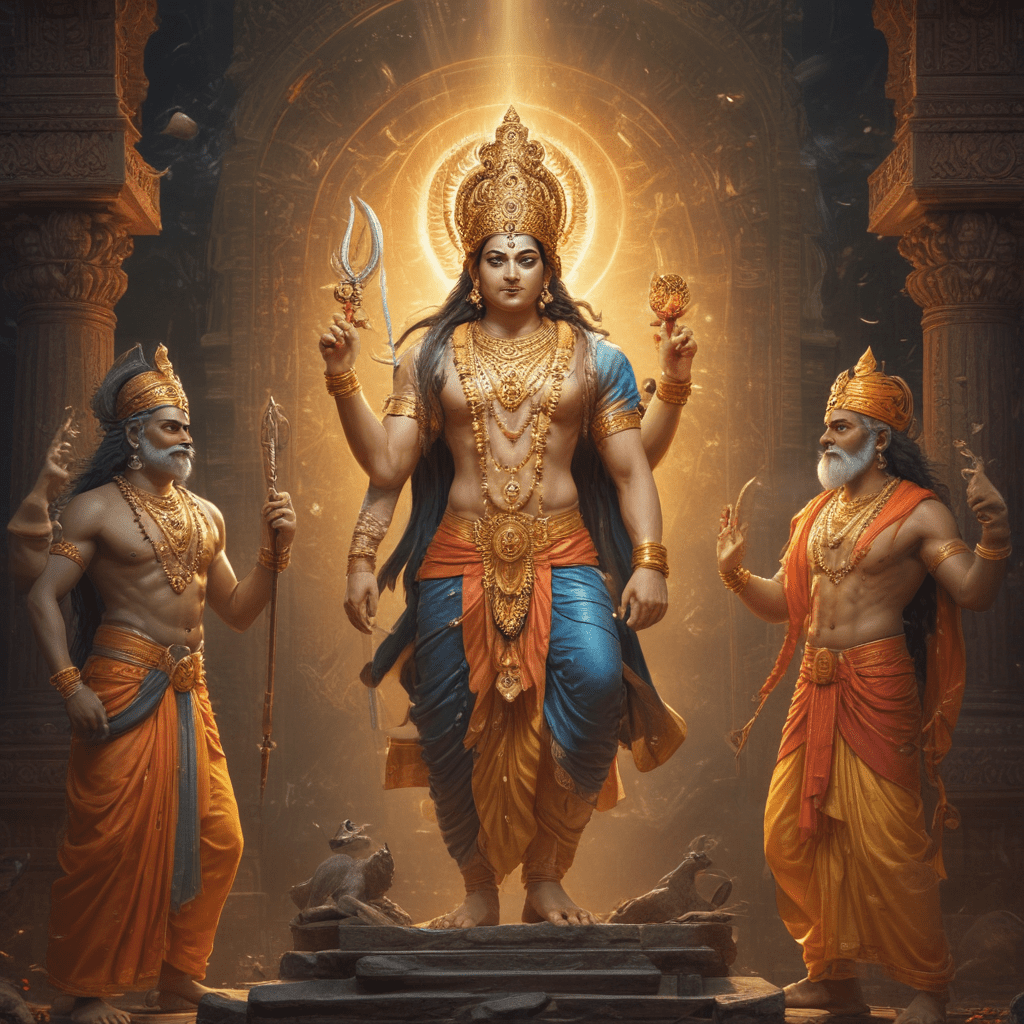From Darkness to Light: The Transformative Power of Mythic Stories
Introduction: The Essence of Mythic Stories
Mythic stories are narratives that transcend time and culture, embodying the collective wisdom and experiences of humanity. They often delve into the depths of human existence, exploring themes of creation, destruction, and rebirth. These stories serve as a bridge from darkness to light, guiding individuals through their personal struggles and illuminating paths toward understanding and growth.
At their core, mythic stories provide meaning and context to our lives, allowing us to connect with our deepest fears, hopes, and dreams. They resonate on a universal level, offering insights that can be applied across different cultures and societies.
The Role of Mythology in Human Experience
Throughout history, mythology has played an integral role in shaping human experience. From ancient civilizations to modern societies, myths have offered explanations for natural phenomena, moral guidance, and a framework for understanding the human condition.
Different cultures have their own unique mythologies, yet many share common threads that reflect the universal challenges of life. For instance:
- Creation myths explain the origins of the world and humanity.
- Heroic tales depict individuals overcoming great obstacles.
- Tragic stories illustrate the consequences of hubris and moral failings.
The psychological and emotional impact of these narratives is profound. They allow individuals to confront their fears and uncertainties, providing a safe space to explore complex emotions.
Archetypes and Themes in Mythic Stories
Mythic stories are rich with archetypes and recurring themes that resonate deeply with human psychology. Common archetypes include:
- The Hero: Embodies courage and the willingness to embark on a transformative journey.
- The Mentor: Guides the hero, offering wisdom and support.
- The Shadow: Represents the darker aspects of human nature that must be confronted.
Recurring themes in these narratives often highlight:
- Transformation: Characters undergo significant changes, reflecting personal growth.
- Redemption: Stories of individuals seeking forgiveness and a second chance.
- The Hero’s Journey: A narrative structure illustrating the hero’s adventure, trials, and ultimate return.
The Healing Power of Storytelling
Mythic stories have a remarkable ability to facilitate healing, both personally and communally. They provide frameworks through which individuals can process trauma, grief, and loss. By identifying with characters and their journeys, people often find solace and understanding.
Case studies of mythic stories that have inspired healing include:
- The tale of Persephone, representing the cyclical nature of life and death.
- The story of Job, illustrating endurance in the face of suffering.
- The legend of the Phoenix, symbolizing rebirth and renewal after a period of despair.
Mythic Stories as Tools for Understanding Life’s Challenges
Mythic narratives serve as powerful tools for confronting and navigating adversity. They allow individuals to explore their struggles through the lens of allegory, making complex situations more comprehensible.
For example, the story of Theseus and the Minotaur can represent the journey of facing one’s fears and overcoming internal monsters. Such allegories help individuals articulate their own challenges and find strategies for coping.
Cultural Transmission of Values through Myth
Mythic stories are not just entertaining; they also convey moral lessons and cultural values. They serve to instill societal norms and shape behaviors, acting as a guide for what is considered right and wrong.
Examples of values transmitted through myths include:
- Bravery in the face of adversity.
- The importance of community and cooperation.
- Respect for nature and the interconnectedness of all beings.
Modern Adaptations of Ancient Myths
Today’s literature, film, and art often draw upon mythic elements, reinterpreting and revitalizing ancient themes for contemporary audiences. Examples include:
- Marvel’s Thor: A modern retelling of Norse mythology.
- Disney’s Hercules: A playful adaptation of Greek myths.
- The Harry Potter series: Incorporating archetypal hero narratives and themes of sacrifice and love.
These adaptations demonstrate the timelessness of mythic stories and their ability to resonate across generations.
The Science of Storytelling: Psychological Perspectives
Psychological research shows that storytelling has a profound impact on cognition and emotion. Stories activate different areas of the brain, enhancing empathy and understanding.
Furthermore, narratives play a crucial role in shaping identity and worldview. They help individuals make sense of their experiences and connect with others, fostering a sense of belonging and community.
Creating Your Own Transformative Myth
Individuals can harness the power of myth by crafting their own stories. Here are some practical tips:
- Reflect on personal experiences and identify key challenges.
- Identify archetypes that resonate with your journey.
- Write a narrative that encapsulates your struggles and triumphs.
Exercises such as journaling or participating in storytelling workshops can help explore personal narratives and their transformative potential.
Conclusion: Embracing the Light in Our Stories
Mythic stories hold transformative power, guiding us from darkness to light. They provide frameworks for understanding, healing, and growth, encouraging us to confront our fears and embrace our journeys.
As we engage with these narratives, we are called to share our own mythic journeys, fostering connection and understanding within our communities. Let us embrace the light in our stories and inspire others along their paths.



